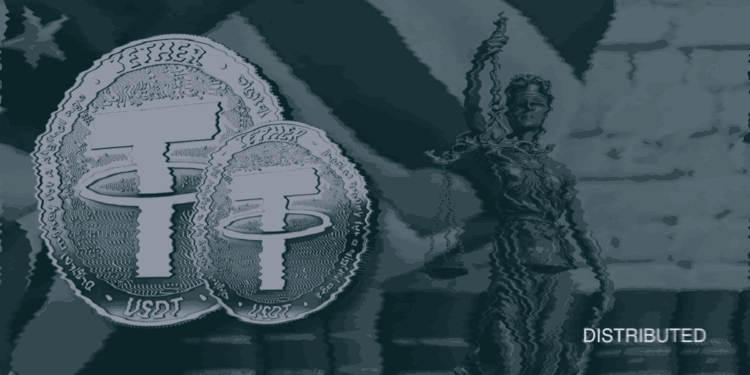- The company is reportedly providing input on multiple stablecoin bills, including the STABLE Act introduced on February 6.
- Tether’s discussions align with broader industry talks with the SEC as crypto executives seek clarity on regulatory requirements.
Stablecoin issuer Tether is actively engaging with US lawmakers to influence the future of stablecoin regulation. As policymakers work to introduce new rules, Tether reportedly seeks to provide its input on what could become a shift in how major crypto firms approach compliance.
According to sources familiar with the matter, as reported by Cointelegraph, Tether is in discussions with Representatives Bryan Steil and French Hill regarding the STABLE Act, introduced on February 6.
The company is also offering insights on two additional stablecoin bills proposed by other lawmakers. CEO Paolo Ardoino confirmed Tether’s involvement, highlighting the firm’s willingness to participate in shaping regulations.
See Related: Bitcoin And Ethereum Technical Analysis: BTC Price Requires One More Push To Reach The $40K Mark
Tether’s Role In Congressional Stablecoin Legislation
“We are going to work within the regulatory framework, and we are going to try to advise on every single one of these field proposals to make sure that our voice is heard,” said Ardoino, referring to the three stablecoin bills introduced last week in the House and Senate.
Tether’s engagement with US lawmakers aligns with ongoing discussions in the crypto industry, where executives are meeting with the Securities and Exchange Commission (SEC) to address regulatory concerns. Additionally, political figures have emphasized the need to bring stablecoin operations onshore.
Stablecoin issuers like Tether have become significant buyers of US government debt, using Treasury securities to overcollateralize their tokens. This mechanism increases demand for the US dollar, reinforcing its global influence in capital markets.
“We are not going to just throw in the towel and let Tether die just for the sake of not adapting to U.S. legislation,” he added. “But there is still a lot of uncertainty over what’s actually going to happen, and we want our voice to be heard in the legislative process.”
While Tether’s engagement with lawmakers suggests a willingness to comply with future regulations, the broader industry remains uncertain about how forthcoming policies will impact stablecoin issuers.



